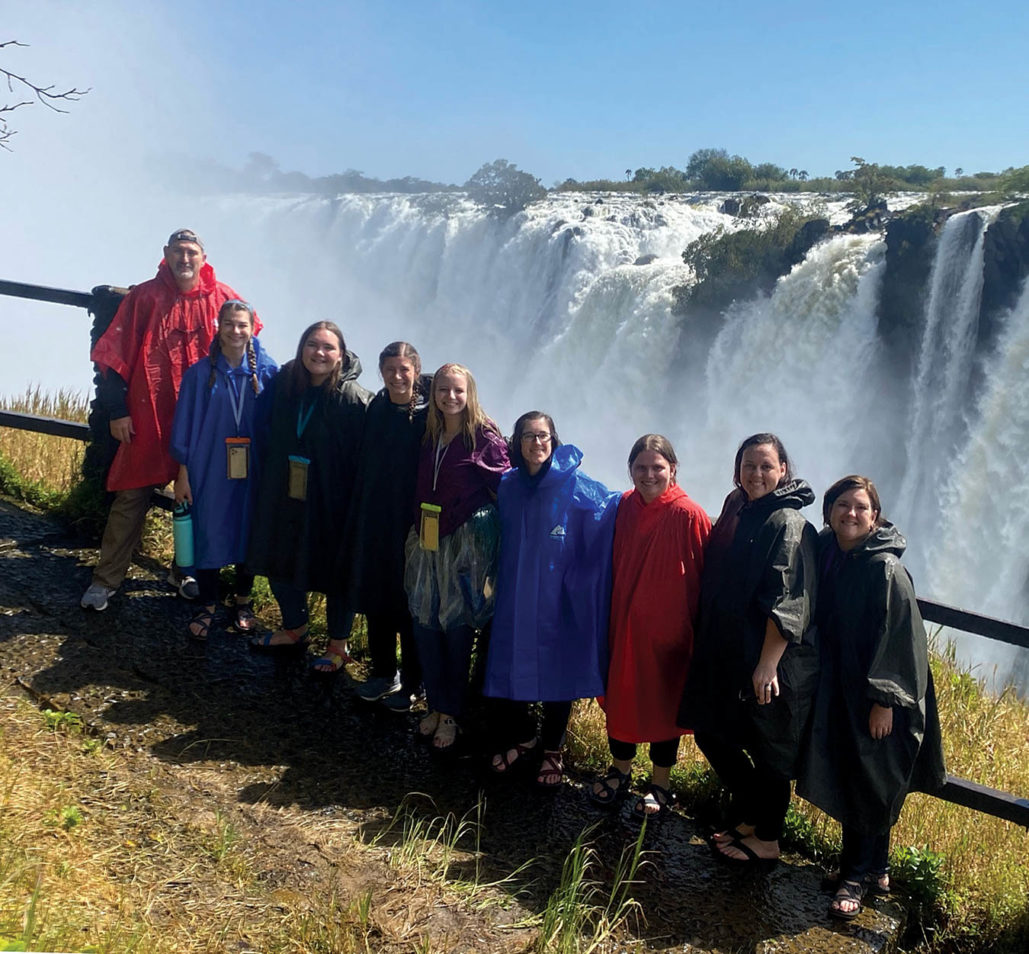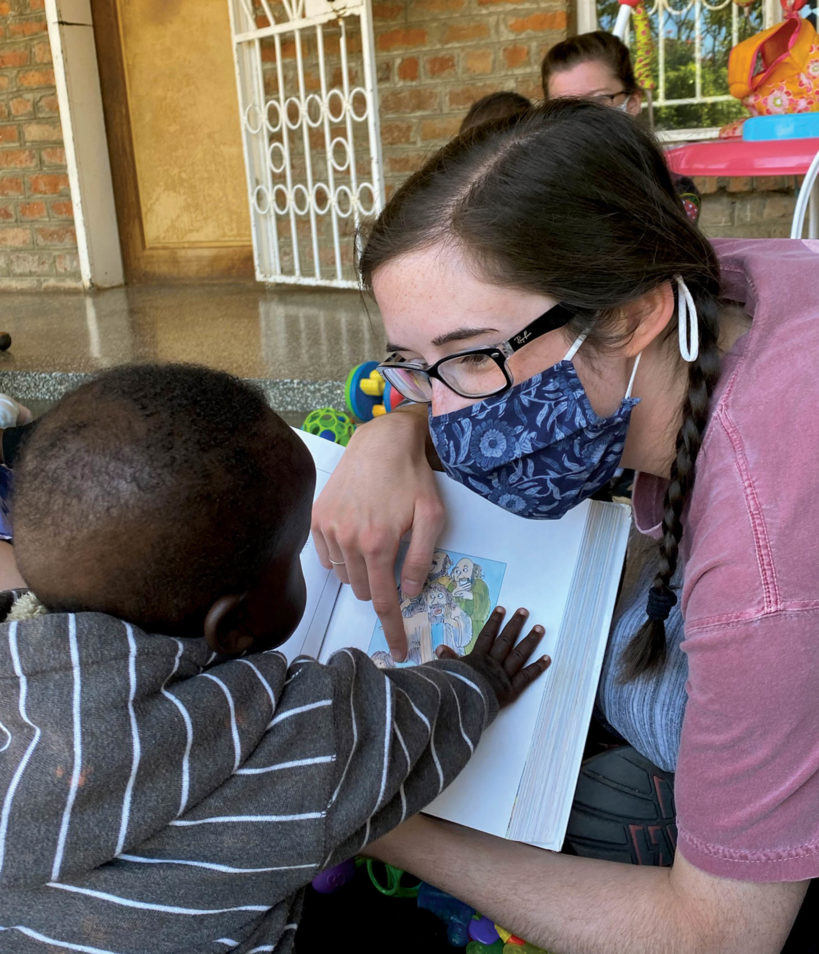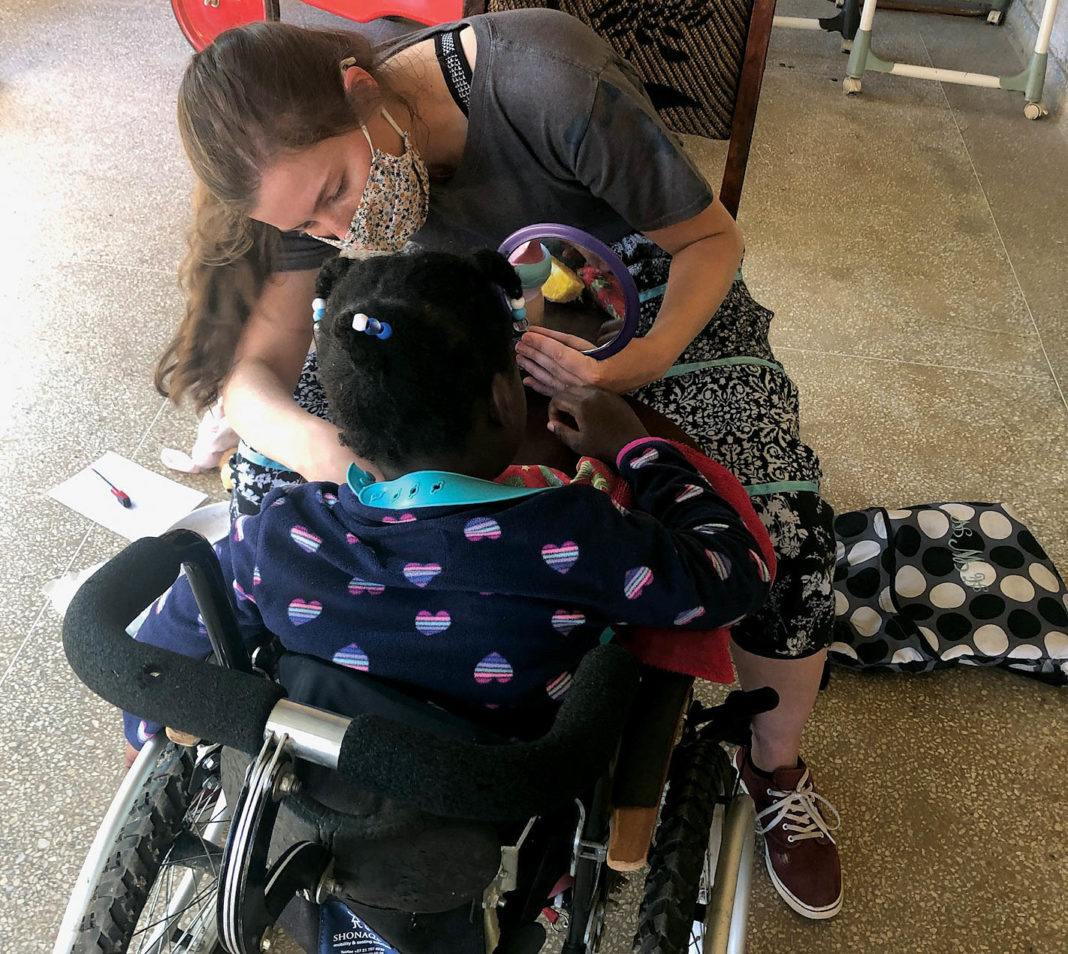By Melanie Meeker, communication sciences and disorders chair
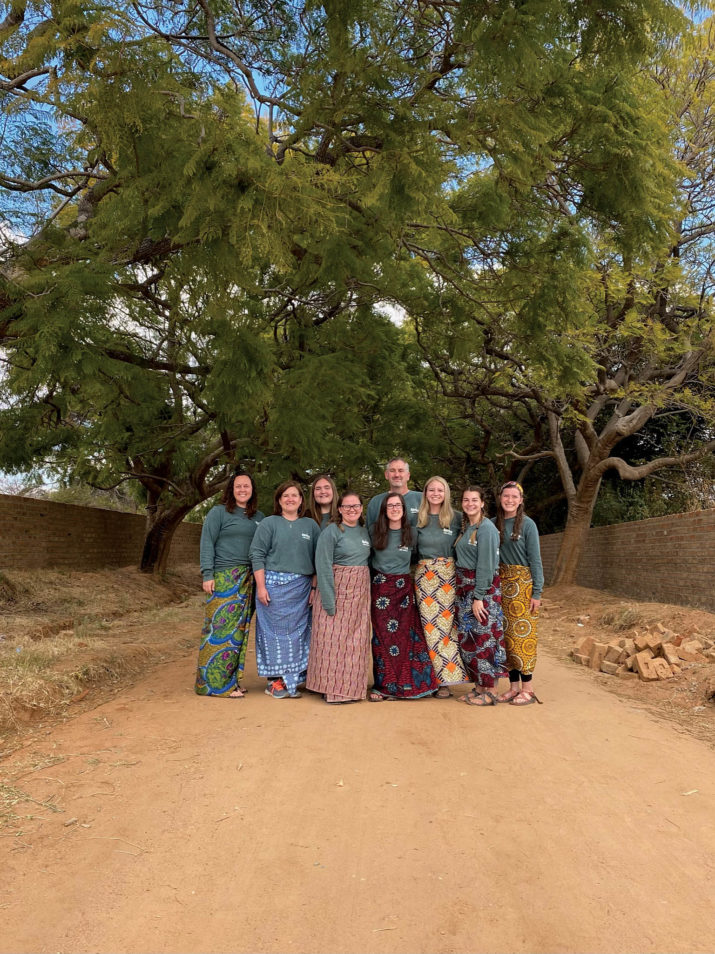
Sometimes I check the weather there to see if it’s raining in Zambia. I have come to care deeply about whether the crops are growing on the other side of the planet. I’ve closely followed their recent presidential elections and often check my currency conversion app to see if the kwacha is gaining strength. Often, I receive a message from one of the Aunties at the Haven, telling me about the growth and progress of a baby I have come to love. Almost daily I receive a message from Justin, the coach of a recreational soccer team, checking on me and wanting to know how I am doing. My skin is as white as it can be, but Zambia is under my skin and in my blood. I have brothers and sisters on the other side of the world. You do too, but you may not know them.
The Speech-Language Pathology program at Harding has had a presence in Zambia, Africa, since summer 2008. Drs. Dan Tullos and Beckie Weaver led an exploratory trip to determine whether developing a clinical practicum experience for students earning their master’s in this new graduate program was feasible and possible. The answer was a resounding “yes!,” and the first group of graduate students and faculty spent six weeks there in summer 2009. Except for 2015 and 2020 — when prevented by Ebola and COVID-19 respectively — we’ve been there every summer since.
The speech-language pathology profession is virtually nonexistent in much of Africa. We have approximately 2800 SLPs in the state of Arkansas. In contrast, we know of only a handful of SLPs in the nation of Zambia, a country roughly the size of Texas. Imagine individuals who have had a stroke, children with cleft lip or palate, those with cerebral palsy or Down syndrome having virtually no access to the professionals who could help them talk, learn and eat. You don’t have to look far to find places to make a difference.
Much of our clinical work is done at a place called the Haven, a transitional home for babies and young children whose families are unable to care for them. Often these babies have lost their mothers, and there is no way for them to eat. Infant formula is prohibitively expensive in Zambia, and even if it were easily available, the lack of consistent clean water is a barrier to using it. The Haven is a place for these children to be cared for and loved until their families are able to welcome them back home — often by age 2 or 3. Some of these babies experienced a traumatic birth; prenatal care there is nothing like what we have in the U.S. Our graduate students provide feeding therapy, language therapy and other support to help them develop good communication and eating skills.
I gave my client the tools she needed to create speech, and she took that and my modeling and shaping and ran with it. Watching her grow and develop before my eyes was incredible, encouraging and such a gift. Her progress makes me excited to watch my future clients grow and thrive.
Audrey Vesperman, Class of 2023
We quickly became friends with our Christian sisters who take good care of these little ones. These “Aunties” teach us to make nshima (pronounced shee-ma), the staple of the local diet, over an open fire in an outdoor kitchen. They teach us to use cloth diapers and expand our vocabulary of words and phrases in Tonga, the local language. They welcome our students into their homes for a weekend, which is a highlight of the trip for many. The most important teaching they do, however, is teaching the babies about Jesus. Any toddler at the Haven can recite “the truth:”
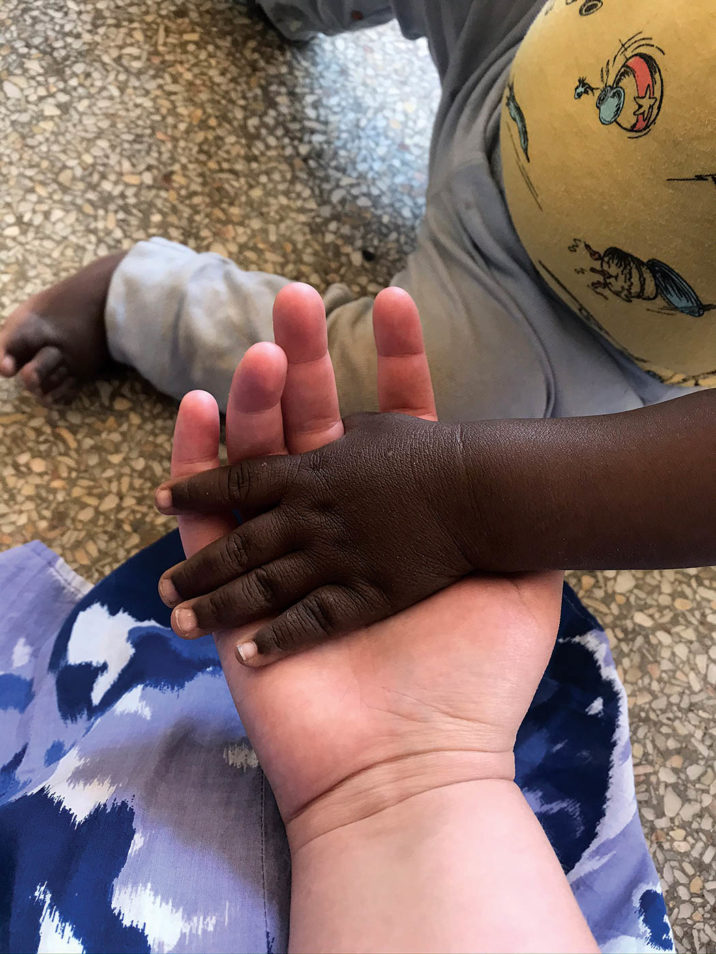
God is good.
Nothing is impossible.
Jesus already won.
Everyone is important
I am God’s treasure.
I am the one Jesus loves.
In addition to working at the Haven, we’ve also begun providing therapy services to a group of babies at the local physical therapy clinic. Those babies were coming to therapy to learn skills like sitting up and standing, but we quickly noticed they needed skills such as making eye contact and babbling sounds and moving their tongues and mouths properly to support eating new foods. We started doing therapy with these babies, and before we knew it, we were seeing a group of 4-5 babies three times each week. In the short time we were there, we watched them start to make new sounds, begin to smile and eat new foods like bananas and avocados. Most importantly, we were able to teach the babies’ mothers and the local physical therapists how to continue developing these skills after we were gone.
You may remember the story in the Gospel of John describing an encounter that Jesus and his disciples had with a man born blind. His disciples asked him, “Rabbi, who sinned, this man or his parents that he was born blind?” John 9:2. The idea that children are born with disabilities as a result of sin is alive and well in African culture. Partially as a result of this mindset, these children rarely have access to the services that benefit American children. Simon’s School is one of just a few schools in the region to offer special education services to these little ones. This school realizes the dream of Meagan Hawley, an American missionary serving at the Haven through Zambia Mission Fund. The school is named in honor of a sweet boy whom we grew to love in 2019. Simon’s life on this earth was too short to allow him time to attend the school, but we were thrilled to see it open and watch the first two little girls in their darling school uniforms enter its doors this summer. Children in this region who have special educational, mobility or communication needs now have an opportunity to attend school and reach their full potential — what a blessing to witness! Growing our partnership with and supporting the work of the teachers at Simon’s School will be an emerging focus of our future work.
Local people in need of healthcare flock to the Namwianga Mission Hospital. By our standards, these professionals have a limited pharmacy, no blood bank or ambulance, and the X-ray machine has been broken for two years. Yet what they have in abundance is creativity, compassion and conviction. So often in Jesus’ ministry we see him attending to the physical needs of those he meets before addressing their spiritual needs. We saw this same model in action at the Namwianga Hospital and see our program fostering greater involvement with the hospital in coming years, especially with stroke survivors.
Our group lodges at the beautiful Namwianga Mission where we enjoy the hospitality of our Zambian friends. Andrew, Leonard and Harold prepare our meals. We enjoy American favorites such as chicken spaghetti, hamburgers and pancakes. The HIZ-Path trip is not a diet! Every Thursday at lunch we have nshima, complete with the local accompaniments. One of our favorite evenings is spent at a huge granite slab nearby called Jordan’s Rock. We roast hot dogs and marshmallows and enjoy ice cold Cokes from glass bottles. We are always joined by some children from a local village who come to see the white visitors (mwakua). Treating them to their first marshmallows is lots of fun. You’ve probably never seen the stars like you can in sub-Saharan Africa. I’d never seen the Milky Way (other than in a textbook) before going to Zambia. We probably witnessed a dozen shooting stars during a half hour of stargazing at Jordan’s Rock.
In addition to the wonders of the heavens, we also have the opportunity to marvel at the wonders of the Earth. One of the Seven Wonders of the Natural World is Victoria Falls in nearby Livingstone. The entire volume of the Zambezi River plunges 33 stories in a single sheet of water, resulting in a mist that feels more like a blinding spring thundershower. If you’ve seen Niagara Falls, you have some context for the magnitude of Victoria Falls, which is roughly twice as tall and twice as wide as Niagara. Viewing the mist of the falls by the light of a full moon results in a spectacular sight called the “moonbow.” The locals call the Falls Mosi-oa-Tunya, which means The Smoke that Thunders. The name is apt, for sure.
God must delight in his creation and the pleasure that it brings us. While in Zambia, our students are able to get close to some amazing wildlife. They ride elephants, take a leopard for a walk and pet lions. During High Tea at the Royal Livingstone Hotel, they just might see a zebra or giraffe amble by while they enjoy tea and scones on the veranda. If they’re brave (and in good shape) they can hike down to the bottom of Victoria Falls. Some slightly aggressive baboons guard the steep stone steps descending to the bank of the rolling river, a place known as the Boiling Pot. Our safari day brings us close to crocodiles snoozing in the sun, hippo families bathing in the river or a pride of lions napping under an acacia tree. It’s an amazing experience to find yourself in the middle of 100 elephants heading to the river for a drink.
As stunning as Africa is in wildlife and scenery, if you ask any HIZ-Path alumni about their favorite part of the trip, they’ll talk about the people that they met.
The Zambian people and culture are so beautiful, relational and strong. They have so little, and yet their love for God, who is their strength and portion, is beyond anything I have seen. They reminded me of the gift it is to worship God, our savior, protector and provider. My kids at the Haven showed me the power of growth and how just a little nudge from someone can spark incredible progress in development. The people I met there showed me that great strength and joy can be found in the darkest of circumstances. My worldview has been changed by this work .
Audrey Vesperman , Class of 2023
I love to worship with the Zambian Christians. When my Southern American voice joins with theirs in worship of the one Jehovah God, I am moved to tears every time. In Revelation 7:9 John describes worship in Heaven. “There before me was a great multitude that no one could count, from every nation, tribe, people and language, standing before the throne and before the Lamb.” Worship in Zambia gives me a glimpse of Heaven. I am blessed by the patient kindness of the Aunties who sit with us on their veranda and patiently correct our pronunciation as they tenderly teach us the most simple of children’s songs in the local language. Whether learning “Jesus Loves Me” in Tonga or listening to the Zambians praising God with their powerful voices, worshipping with Christians there touches me deeply.
I have been so impressed by the impact the HIZ-Path program has had on the Namwianga Mission community in Zambia. Through practical application lessons and diagnostic skills, the CSD students and faculty have passed along invaluable, usable knowledge. These lessons are being implemented by the Zambians on a daily basis at the Haven as well as in other areas of the mission. Whether simple or more complex, this information has had a lasting influence for good. The HIZ-Path program has made a difference in the lives of those they have served in Zambia.
Dianne Myhan, HIZ faculty member
It is the deepest desire of the HIZ-Path program that we contribute in meaningful ways to these people whom we have come to dearly love. Whether teaching language enrichment lessons, improving bottle feeding skills, lecturing at the local college or supporting their economy with serious souvenir shopping, we hope our presence there is a blessing. As we leave each year, however, we know that we are truly the ones who have been blessed beyond measure and changed in deep, soul-penetrating ways. We’ve experienced the grace, generosity, humor and industriousness of these wonderful people. They’ve taught us to see our God in different ways, and we are better because of it.
